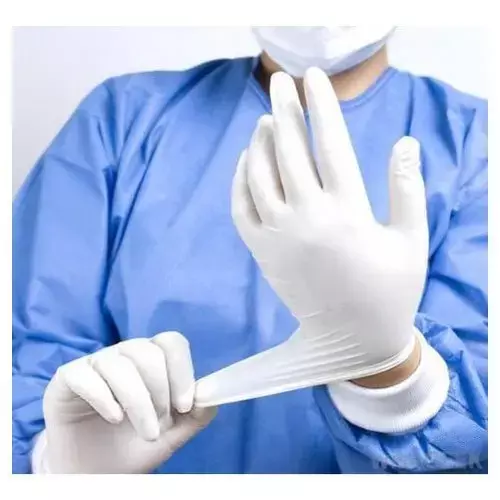- Home
- Medical news & Guidelines
- Anesthesiology
- Cardiology and CTVS
- Critical Care
- Dentistry
- Dermatology
- Diabetes and Endocrinology
- ENT
- Gastroenterology
- Medicine
- Nephrology
- Neurology
- Obstretics-Gynaecology
- Oncology
- Ophthalmology
- Orthopaedics
- Pediatrics-Neonatology
- Psychiatry
- Pulmonology
- Radiology
- Surgery
- Urology
- Laboratory Medicine
- Diet
- Nursing
- Paramedical
- Physiotherapy
- Health news
- Fact Check
- Bone Health Fact Check
- Brain Health Fact Check
- Cancer Related Fact Check
- Child Care Fact Check
- Dental and oral health fact check
- Diabetes and metabolic health fact check
- Diet and Nutrition Fact Check
- Eye and ENT Care Fact Check
- Fitness fact check
- Gut health fact check
- Heart health fact check
- Kidney health fact check
- Medical education fact check
- Men's health fact check
- Respiratory fact check
- Skin and hair care fact check
- Vaccine and Immunization fact check
- Women's health fact check
- AYUSH
- State News
- Andaman and Nicobar Islands
- Andhra Pradesh
- Arunachal Pradesh
- Assam
- Bihar
- Chandigarh
- Chattisgarh
- Dadra and Nagar Haveli
- Daman and Diu
- Delhi
- Goa
- Gujarat
- Haryana
- Himachal Pradesh
- Jammu & Kashmir
- Jharkhand
- Karnataka
- Kerala
- Ladakh
- Lakshadweep
- Madhya Pradesh
- Maharashtra
- Manipur
- Meghalaya
- Mizoram
- Nagaland
- Odisha
- Puducherry
- Punjab
- Rajasthan
- Sikkim
- Tamil Nadu
- Telangana
- Tripura
- Uttar Pradesh
- Uttrakhand
- West Bengal
- Medical Education
- Industry
Donning Gloves before Surgical Gown may Cross-contaminate the Assistant

Maintaining a sterile surgical environment is of the upmost importance in total joint arthroplasty. The surgical gown-glove interface is a frequent and known cause of bacterial contamination.
Surgeons most commonly don their gown and gloves with the assistance of a staff member. After the gown has been placed on the surgeon, they can enter the gloves via a closed or open technique. In the closed method, the surgeon's hand remains entirely within the cuff while the assistant places the glove over the enclosed hand. Subsequent adjustments are often necessary to maneuver the cuff into a comfortable position and to ensure the fingers are in the right location. In the open method, the fingers protrude through the end of the sleeve and are exposed. The assistant then stretches the glove open while the hand slides into the glove. The uncomfortable nature of the closed technique and need for adjustments have limited its adoption.
Although staff-assisted open-gloving technique has demonstrated improved sterility for the surgeon, no studies have considered the effects of this technique on the person assisting the surgeon.
Alec Sundet et al hypothesized that the process of donning undergloves before the surgical gown leads to higher rates of contamination for the assistant. Their study has been published in "Arthroplasty Today" journal.
The authors conducted a comparative study between the traditional and a gloves-first scrubbing technique. They assessed the differences in gown and glove contamination of the surgical assistant following each scrubbing event. Two surgeons applied ultraviolet light-disclosing lotion to their upper extremities and then performed each method in a randomized order with 40 surgical technologists/ nurses. Blinded evaluators then quantified the amount of contamination on the surgical assistant's gown and gloves.
Key findings of the study were:
• The gloves-first technique resulted in increased contamination of the surgical assistant's gloves (p = .002).
• There was no difference in contamination of the surgical gown (p = .982).
The authors concluded that – "Although the gloves-first technique may result in a more sterile setup for the surgeon, it does so at the expense of increasing contamination of the scrubbing assistant. The sterility of all members on the surgical team is paramount in avoiding surgical infections, particularly in arthroplasty. Until this technique is revised to properly address the contamination introduced to other members on the surgical team, we cannot advocate for its widespread adoption and would strongly recommend that institutions in favor of it require the assistant to rescrub or change gloves after assisting someone with this technique."
Further reading:
Donning Gloves before Surgical Gown Cross-contaminates the Assistant
Alec Sundet, Nathaniel J. Nelms et al
Arthroplasty Today 17 (2022) 142 - 144
https://doi.org/10.1016/j.artd.2022.08.009
MBBS, Dip. Ortho, DNB ortho, MNAMS
Dr Supreeth D R (MBBS, Dip. Ortho, DNB ortho, MNAMS) is a practicing orthopedician with interest in medical research and publishing articles. He completed MBBS from mysore medical college, dip ortho from Trivandrum medical college and sec. DNB from Manipal Hospital, Bengaluru. He has expirence of 7years in the field of orthopedics. He has presented scientific papers & posters in various state, national and international conferences. His interest in writing articles lead the way to join medical dialogues. He can be contacted at editorial@medicaldialogues.in.
Dr Kamal Kant Kohli-MBBS, DTCD- a chest specialist with more than 30 years of practice and a flair for writing clinical articles, Dr Kamal Kant Kohli joined Medical Dialogues as a Chief Editor of Medical News. Besides writing articles, as an editor, he proofreads and verifies all the medical content published on Medical Dialogues including those coming from journals, studies,medical conferences,guidelines etc. Email: drkohli@medicaldialogues.in. Contact no. 011-43720751


